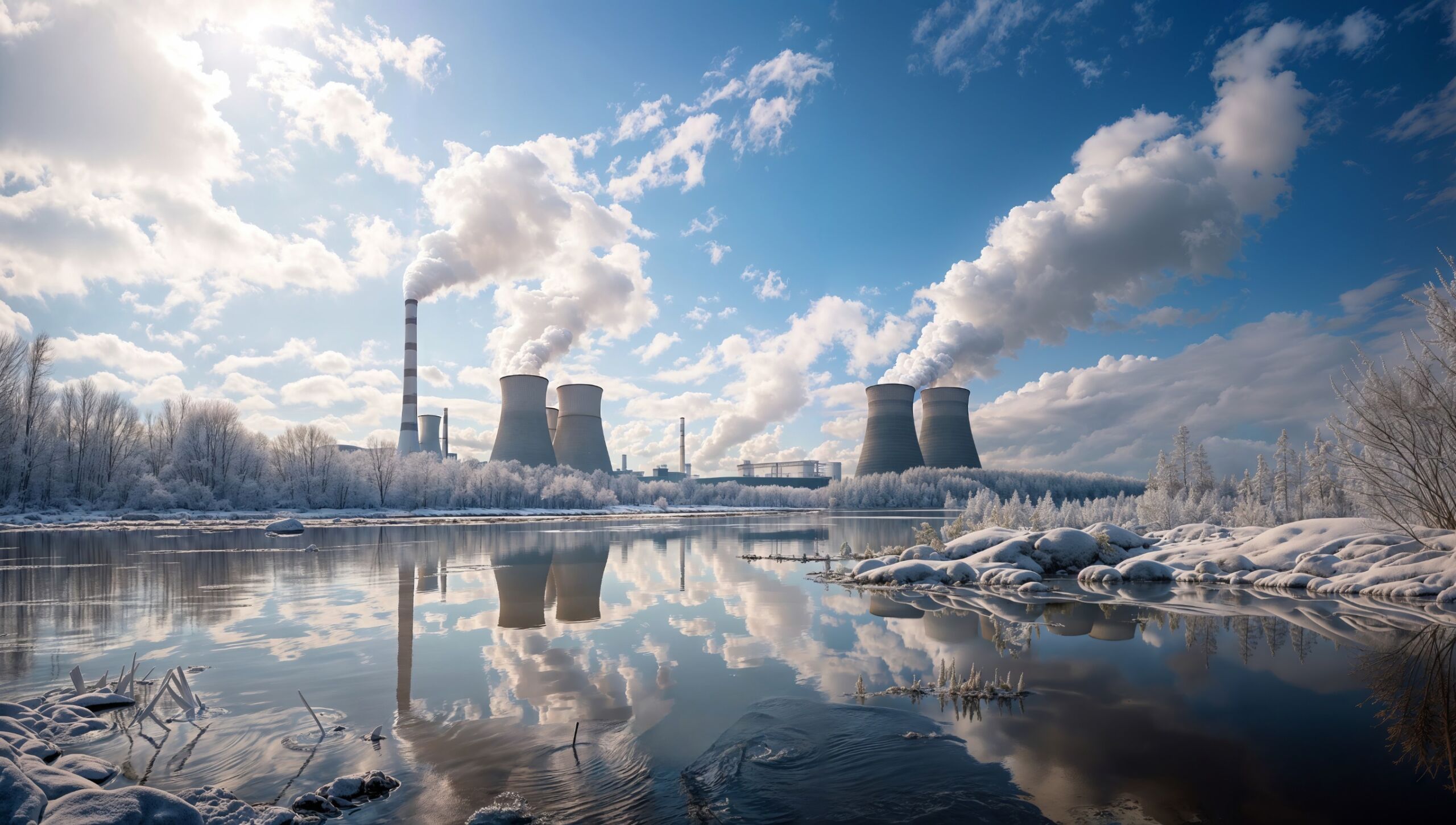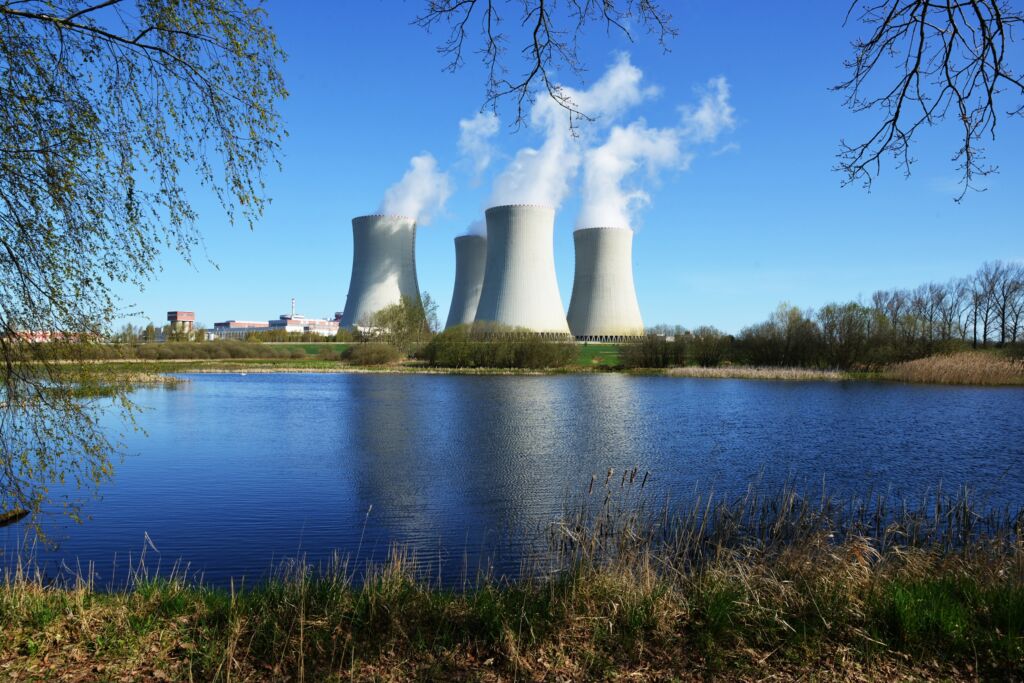Nuclear power in Poland – the evolution of public attitudes
11.03.2024
Nuclear power plants have long aroused mixed feelings in societies around the world. Poland is no exception, and the issue of building a nuclear power plant in the country has been the subject of many debates and changing social attitudes. In the context of recent studies, which show a surge in the number of supporters of this form of energy, it is worth looking at what influenced this change and what benefits can result from investing in nuclear power plants.

In the face of increasing demand for energy and, at the same time, the need to reduce greenhouse gas emissions, nuclear power is becoming an increasingly topical subject on the global stage. Its role in ensuring energy stability, reducing carbon emissions, and the ability to generate large amounts of electricity without dependence on weather conditions, thus makes it a key element in the global pursuit of sustainable development.
Fears and doubts about nuclear power
In Poland, the first talks on the construction of a nuclear power plant were heard as early as in the 1980s. However, due to the Chernobyl disaster in 1986, which had a huge impact on shaping public attitudes towards nuclear energy, these plans were postponed for a long period of time. People were afraid of the potential effects of the accident and the impact on health and the environment. Although the nuclear energy production process itself does not generate greenhouse gas emissions, a large part of the population was concerned about the consequences associated with the collection and storage of radioactive waste. Financial issues and doubts as to whether the construction and maintenance of a nuclear power plant would not be too much of a financial burden for the country and whether the possible costs of an accident would not exceed the benefits associated with energy production were also important. Although modern nuclear power plants are designed to minimize risks and costs, there is still a group of people who doubt the economic viability of this type of investment.
The Chernobyl disaster left a mark on the consciousness of society, and the Fukushima accident in 2011 further intensified the negative attitude of Poles towards nuclear energy. According to CBOS research, in 2021, 39 per cent of respondents were still in favour of the construction of a nuclear power plant in Poland, while 45 per cent of respondents were against.
A change of mindset
Over the past few years, we have seen a gradual change in public attitudes towards nuclear energy. The development of technology, the safety of reactors and the growing environmental awareness have made more and more people consider this form of energy production as an alternative. The demand for sustainable and secure energy in the context of climate change has also had an impact on the change in the publics perspective.
In addition, an important factor that changed the attitude of Poles towards nuclear technology was the war in Ukraine and restrictions on trade with Russia, which had a significant impact on the functioning of the energy sector. Fossil fuel shortages have pushed fossil fuel prices to levels not seen in decades. The energy crisis caused by Russian aggression has caused an increase in electricity and heating prices. Poles have understood that nuclear energy and renewable energy sources are an inevitable stage of development.
A survey commissioned by the Ministry of Climate and Environment in November 2023 shows that almost 90 per cent of the Polish population support the construction of nuclear power plants in Poland, and almost 77 per cent of respondents would agree to locate such a power plant in the vicinity of their place of residence.
While 87.3 per cent of Poles believe that the construction of a nuclear power plant, which is a low-emission source of energy generation, is a good way to fight climate change. Similarly, 91.5 per cent are of the opinion that the construction of a nuclear power plant in Poland will contribute to increasing the country’s energy security.

Impact on RES investments
At the same time, investments in nuclear power plants do not preclude the development of other forms of energy, including renewable sources. On the contrary, they can provide a complementary source of energy, helping to meet the growing demand for electricity. It turns out, however, that investing in renewable energy sources is a controversial subject among Poles. While in 2016 half of respondents believed that the focus should be on the development of renewable energy sources, currently investing primarily in renewable energy sources is supported by less than one in three respondents. During this time, it is not so much the supporters of non-renewable energy sources, who remain in the vast minority, but the number of people who want to develop energy from both renewable and non-renewable sources has increased (an increase from 39 per cent in 2016 to 56 per cent in 2023). Reducing the emphasis on investments in renewable energy sources can be combined with a fairly broad public support for the development of nuclear energy in Poland, reaching 75 per cent.
Development of nuclear energy
The development of nuclear energy is one of the pillars of Poland’s energy transformation, which assumes the construction of safe and modern nuclear reactors. In December 2021, the coastal location of Lubiatowo-Kopalino in the Choczewo municipality was indicated as the preferred location for the first Polish nuclear power plant. According to the current schedule, construction will start in 2026 and the first unit will be commissioned in 2033. By 2043, Poland’s nuclear power plants will produce about 25 per cent of Poland’s required electricity, guaranteeing a stable supply of clean energy to millions of homes across the country.
The attitudes of the public towards the construction of nuclear power plants in Poland are changing, from fears and doubts to a growing understanding of the benefits associated with this form of energy production. Investments in nuclear power plants, combined with the development of renewable energy sources, can contribute to the sustainable energy development of the country, ensuring energy security and reducing CO2 emissions.
Sources:
Spis treściTable of contents
- Everything
-
No search results. Please try again.
The Export Promotion Portal uses cookies to make it easier for users to use the website and for statistical purposes. If you do not block these files, you agree to their use and saving in the memory of your computer or other device. Remember that you can change your browser settings to block the storage of cookies. More information can be found in Privacy Policy and Terms and conditions.